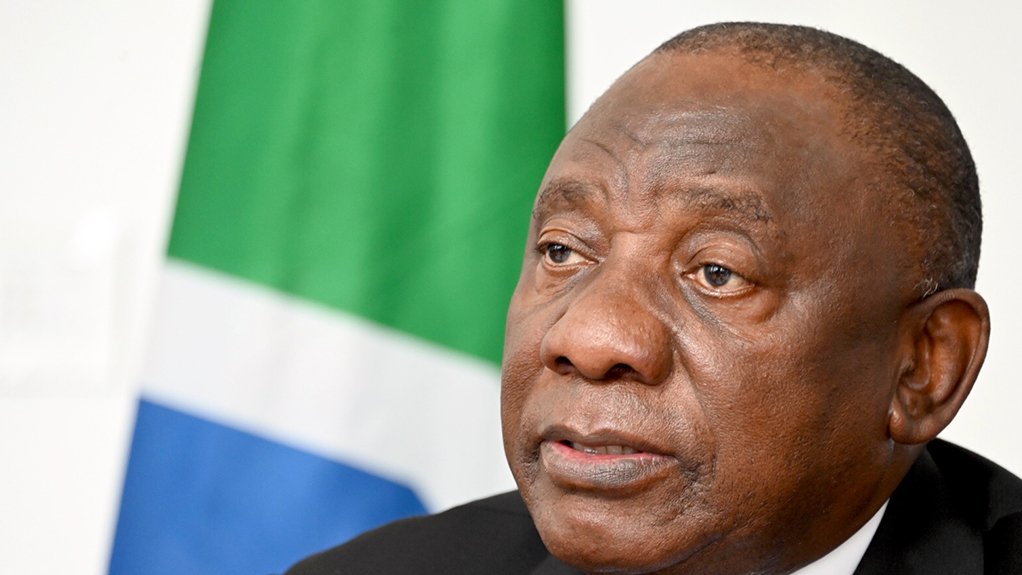The Economic Freedom Fighters (EFF) have filed an application for leave to appeal Acting Judge Cassim Sardiwalla's ruling that it had no right to seek the unsealing of President Cyril Ramaphosa's CR17 bank statements.
Gauteng High Court in Pretoria Deputy Judge President Aubrey Ledwaba sealed the records in 2019, after Ramaphosa's lawyers asked that they not be made publicly available because they contained confidential donor information.
The EFF now argue that Sardiwalla's ruling "contradicts no fewer than three Constitutional Court and/or Supreme Court of Appeal judgments on the open justice principle".
They are seeking to challenge it in the Appeal Court.
As Ramaphosa again took the stand in the State Capture Inquiry on Thursday, the EFF launched an appeal aimed at ensuring that his CR17 campaign bank account records are unsealed.
In papers filed at the Gauteng High Court in Pretoria, lawyers for the party argued that Sardiwalla was wrong to find that it had failed to show it had any right to access those records.
The judge further found that the interests of justice did not warrant the disclosure of the records - which had been repeatedly used by Ramaphosa's opponents, with no real evidential backing, to suggest that he was guilty of the same corruption he had promised to root out.
Sardiwalla found that the EFF "has not advanced any public or private good that will be served by public disclosure against the personal danger in which parties of the CR17 Campaign concerned and their activities will be placed".
The EFF's lawyers said this ruling was clearly incorrect.
"[Sardiwalla's] decision, with respect, endorsed secrecy," they argued.
"[T]he sealed records are fundamental for our democracy, specifically related to the right to vote. The overwhelming public interest favours the unsealing..."
Ledwaba had invited the parties in the case, which later included the EFF, to apply for the records to be unsealed in an open court hearing. No one did so.
At the time, Ramaphosa was challenging Public Protector Busisiwe Mkhwebane's report on his CR17 campaign - in which she not only found that he had lied to Parliament, but that his campaign may be implicated in money-laundering.
She also ordered that Ramaphosa be forced to disclose his donors to Parliament.
The Constitutional Court's majority recently ruled that Ramaphosa was not under a legal duty to disclose the identities of his CR17 funders.
The court also said that there was no evidence to support Mkhwebane's finding - championed by the EFF - that Ramaphosa had exposed himself to a risk of conflict of interest between his public responsibilities and private interests, or abused his position to enrich himself.
It further found that neither Mkhwebane nor the EFF had produced any evidence that Ramaphosa had personally benefitted from the CR17 campaign, meaning that - under the Executive Ethics Code - he was not obliged to disclose those donations as benefits.
"It is a leap in logic to hold that the President personally benefitted from the donations made to the CR17 campaign," Justice Chris Jafta wrote.
The ruling went further: That campaign, on the undisputed evidence, existed separately from the President. And there was no evidence that it was appointed to act as his agent. There is therefore no basis in law to regard donations to the CR17 campaign as personal benefits to the President.
The EFF, however, insisted that the CR17 bank statements, which formed part of a confidential Financial Intelligence Centre report obtained by Mkhwebane during her CR17 investigation, must be disclosed.
New precedent
It argued that Ramaphosa and his campaign managers had failed to provide any evidence to justify why the records should remain sealed. It also contends that, had Ramaphosa sought to seal the record, he should have bought "a substantive application" to do so.
"The [Sardiwalla] judgment contradicts no fewer than three Constitutional Court and/or Supreme Court of Appeal judgments on the open justice principle," the EFF argued.
"With respect, this requires attention from the appellate courts, particularly if this judgment becomes the new precedent to oust litigant and/or media and/or public access to judicial proceedings with cases being conducted partially in secret."
The EFF was also seeking to challenge the costs order granted against it by Sardiwalla in the case, which it said "creates a new dangerous precedent that costs may be summarily awarded, and adverse costs granted, against unsuccessful litigants in constitutional litigation".
EMAIL THIS ARTICLE SAVE THIS ARTICLE
To subscribe email subscriptions@creamermedia.co.za or click here
To advertise email advertising@creamermedia.co.za or click here











